Rapule Legonwanye is under the bonnet of his white bakkie but immediately stops when asked about Nelson Mandela. "The old man, he got the country the way it should be. But it is his time and God took him." He wipes his hands on a rag to shake hands before talking about the Madiba he saw in Alex before he was arrested and imprisoned for 27 years. "I saw him with my own eye before he went to Rivonia." That was when Mandela lived in Alexandra – his first home after moving from the Eastern Cape.
He does not think that the world will be any different now that South Africa's first democratically elected black president is gone. "It's like he is not gone because you see that nothing is different. It is hard to think that he is really gone."
As he talks his grandchildren play around him, pushing rubber car tyres around the street. His is a new section of Alex, built by the government to accommodate the mushrooming population across the valley in the old section of Alex. In the distance the towers of Sandton rise, one taxi commute away. They have been taught about Madiba at school, but know little about the man except that he "did good". They all agree that they are sad he is dead, but struggle to explain why.
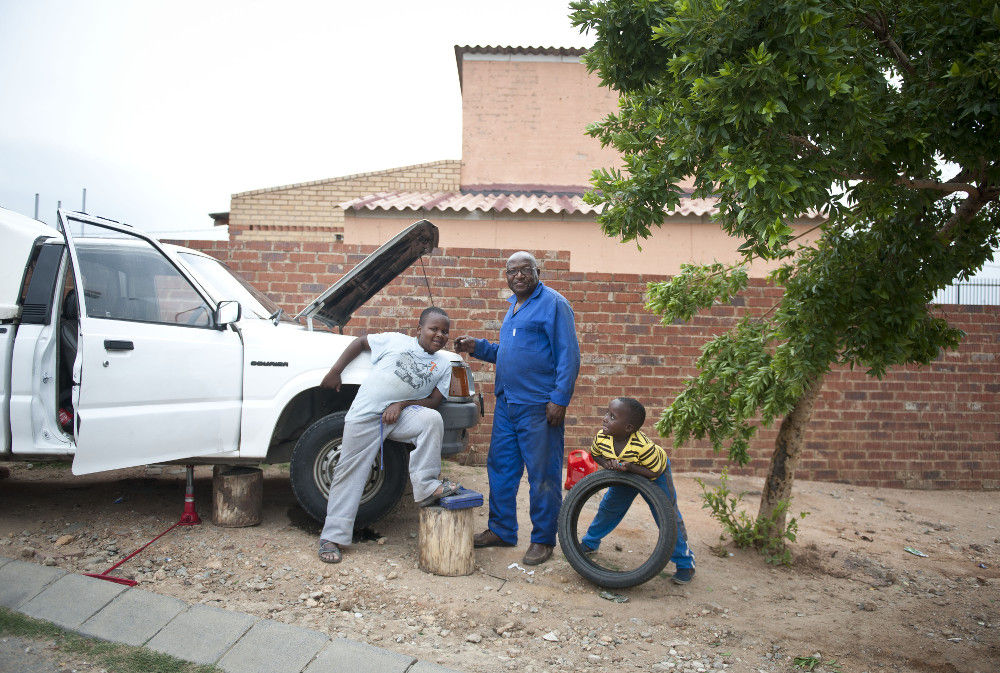
Rapule Legonwanye. (Madelene Cronje, M&G)
Down the tar road teenagers are kicking a football. They came here from the Northern Cape on a football scholarship. "We feel shock and we are sad that he died," says Thabang Mbuyane. "The motto of his that I always use is that the power to change your life is in your hands."
He kicks the football in the air and taps it from one foot to the other, before passing it to his friend. "To make the world a better place you need to work hard. The power is ours," he says. None of the assembled group wants to get into politics because they say politicians do not talk, and do not do anything tangible. "We must change things. That is what we have been taught that Mandela did for us."
As he talks a group of children ask to sign their names on the notepad being used to take notes of what Mbuyane is saying. Most squiggle their names, but one goes into a corner to write a note. "Rest in peace Tata. We love you. Robala ka kgotso. We will miss you. From the Barateng dancers of River Park."
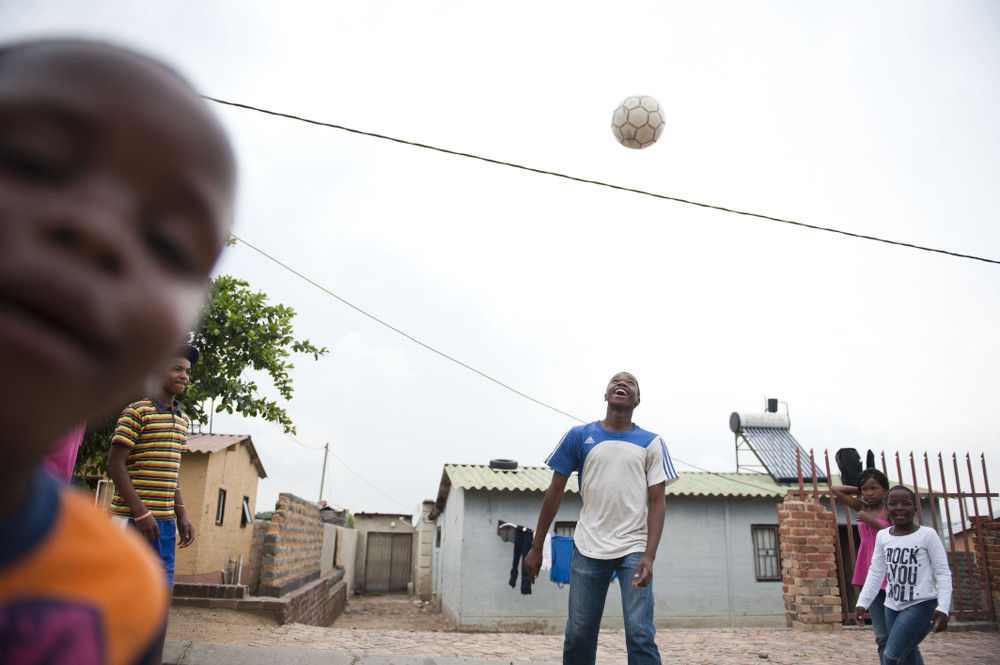
Thabang Mbuyane. (Madelene Cronje, M&G)
In the RDP house of Conray Ngwenya, strains of Youssou N'Dour's Seven Seconds can be heard from a shop-cum-container next door. "I was watching a movie and saw Zuma when I changed channels quickly. He said Madiba has passed and I started shivering. I sat next to the television so I could hear everything he was saying, and when he finished I had tears."
He struggled to fall asleep, and with his family asleep tried to call relatives. But he did not have enough airtime. In the morning he wanted to tell his children, but had to leave for work before they woke up. "In the taxi everyone was chanting Madiba's name. We all talked and shared memories."
Ngwenya first saw Madiba when he held a rally at FNB Stadium shortly after his release. He bunked work to go. "I shook his hand with this hand," he says gesticulating with his right hand. "I met a black god. We have freedom because of that man."
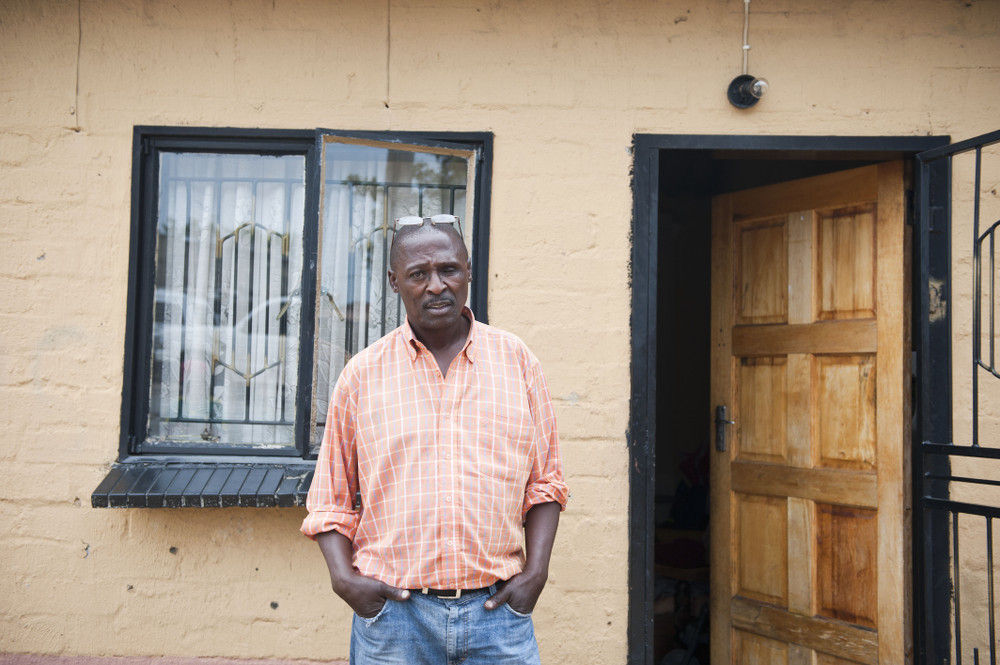
Conray Ngwenya. (Madelene Cronje, M&G)
His television is constantly on, relaying news from around the world into his small and dimly lit living room. "He wasn't looking out for his family, but he was looking after the whole world." Now he wants the country to return to its unity, with a revived ANC leading in the way that Madiba set out: "The father is gone, now the people have to come back to the ANC and lead it."
Across the road from his house, 85-year-old Peter Rermo smiles when he thinks of Madiba. "When he spoke, people would come from all over to listen to him. After that he would dance." He laughs when asked if Madiba had his characteristic shuffle back in the day – "Yes."
Rermo, his front teeth gone and hair white with age, met Madiba often around Alex. He was inspired by the way Mandela talked and how people wanted to follow him. "I knew he was a leader when I first met him. He was going to make life better for all of us," he says, while looking into the distance with piercing eyes.
His tiny, one-room home contains everything he owns, from a cupboard to kettle and cooker. "I just feel so sorry. I do not know how to express this … he was here before and he lived with us. Now he is gone." The last time Rermo saw the man 10 years his senior was when he was arrested and taken to prison.
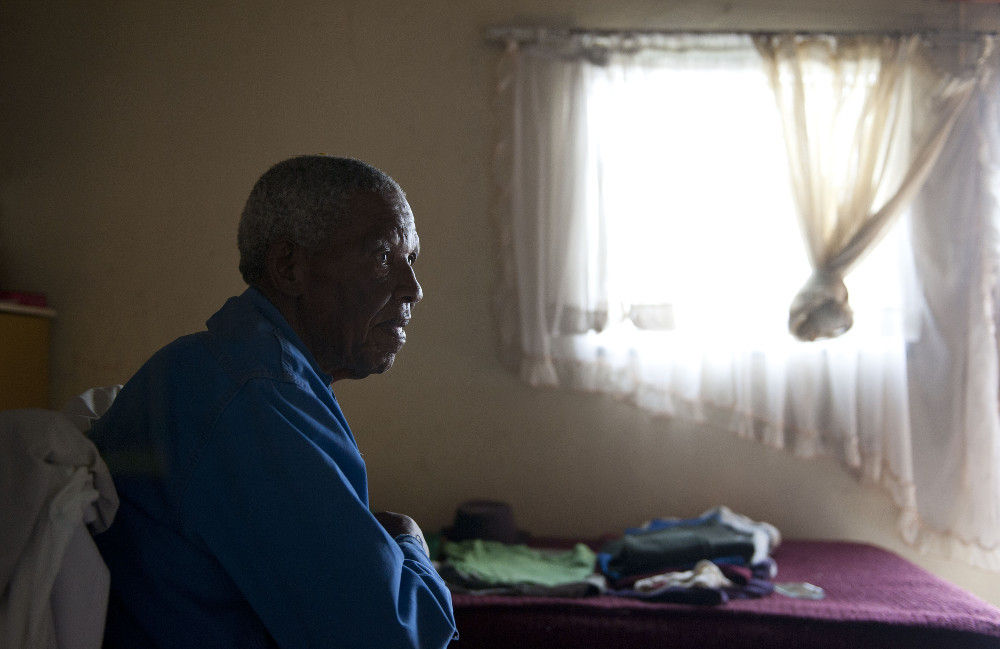
Peter Rermo. (Madelene Cronje, M&G)
Like everyone else in this one area of Alex, he is quietly contemplating what Madiba's death means, and what his life meant. There are no scenes of jubilance or outrage. "We have lost our icon. Our grandfather," says Tsietsi Kungoane. "He was the greatest of them all. He could shake the world." But for now his first home outside of the Eastern Cape is calm.
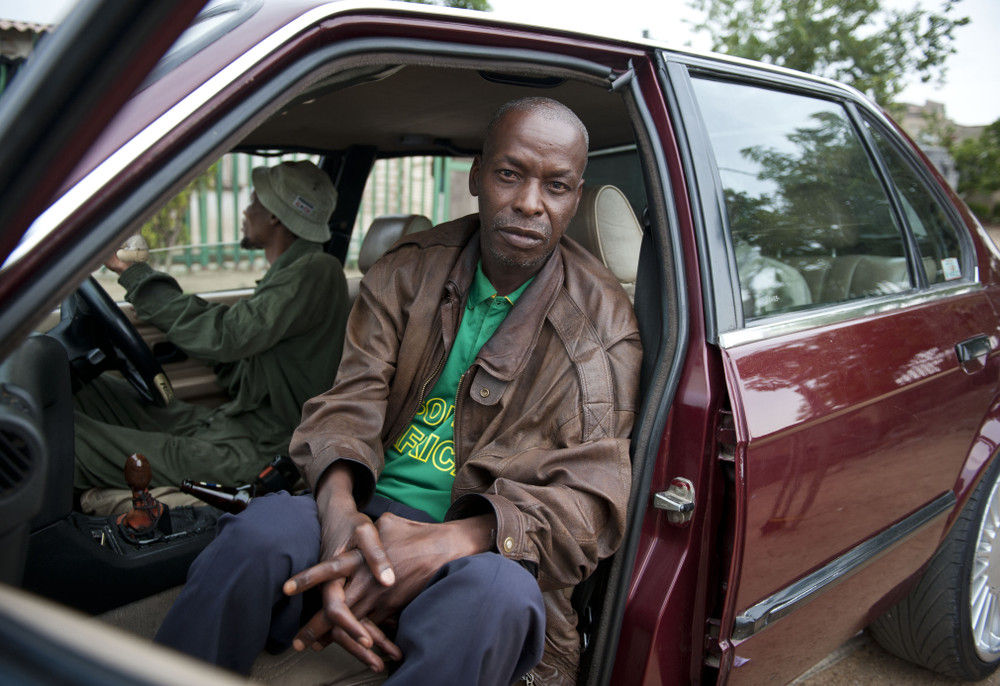
Tsietsi Kungoane. (Madelene Cronje, M&G)